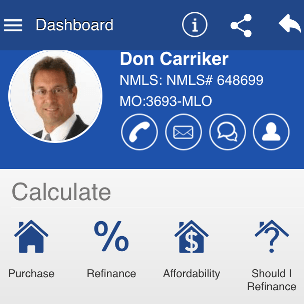What is TRID and how does it affect me?
 You may have heard recently a lot of people bringing up the word TRID. This is a new batch of regulations that are supposed to make the home loan process easier and better for home buyers and those looking to refinance their home. So you may be asking exactly what does TRID mean to me when looking to purchase a home or refinance? We’ll go over what exactly TRID stands for as well as how it will affect you when shopping for a new mortgage.
You may have heard recently a lot of people bringing up the word TRID. This is a new batch of regulations that are supposed to make the home loan process easier and better for home buyers and those looking to refinance their home. So you may be asking exactly what does TRID mean to me when looking to purchase a home or refinance? We’ll go over what exactly TRID stands for as well as how it will affect you when shopping for a new mortgage.
What does TRID stand for?
TRID stands for TILA/RESPA Integrated Disclosure. While there are a lot of acronyms in that sentence, what TRID is actually doing is taking out the Truth-in-Lending disclosure & Good Faith Estimate and replacing them with a “Loan Estimate” document that is supposed to be easier when comparing loans between other companies if you prefer to shop around for a lender.
What are the Main Changes?
- Application- as soon as we receive six items of information from a borrower, disclosures must be sent within 3 business days. These six items are your name, income, social security number, property address, estimated value of the property, and the loan amount you are thinking of getting.
- Time Constraints- the following documents must be sent and received within a certain time period or the closing may be delayed.
- Loan Estimate (LE) – the official “Loan Estimate” document must be sent no later than three business days after receiving the six items that make up a full application. Also, it must be sent no later than seven business days before the loan is closed.
- Closing Disclosure (CD) must be received by borrowers no later than three business days before the loan closes.
- Changes to either of these documents can affect your closing if they are done at the very end.
- Fees- There is now a 0% tolerance on a lot of fees. So your lender must be accurate in estimating fees such as how much your title work will be, any extra Realtor fees that may not be disclosed on your contract, and any kind of funding fees or up front mortgage insurance. We always like to estimate all of our fees high so there are only good surprises at closing when we get the final figures.
- Delivering the Closing Disclosure – Your loan company is now responsible for providing you the Closing Disclosure, including HUD-1 information. In the past it has been provided by the settlement agent.
How will all of this affect you?
At the end of the day you’re wondering how all of this will affect you. Unfortunately, it will affect you a little bit. The good news is that you hopefully picked a lender whose company has had training and implemented new ways to make the new TRID guidelines a simple process like we have at IWantAGreatHomeLoan.com. The main thing to take away from this is to be prepared to have more strict guidelines put in place on your mortgage. From start to finish in the mortgage process it is very important that you stay in contact with your lender more closely than what you may have done in the past to ensure a smoother transaction.
If you would like to read all about TRID in detail you can visit the CFPB’s site on this topic. Happy Reading! 🙂


 Should I Pay Off All Of My Debts Before I Buy A Home?
Should I Pay Off All Of My Debts Before I Buy A Home?
Leave a Reply